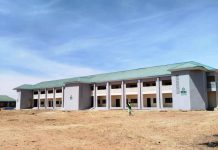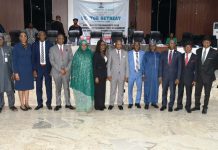The 2nd National Council on Power (NACOP) which held recently in Kaduna witnessed the presentation of four documents by the Minister of Power, Works and Housing, Babatunde Raji Fashola for validation and adoption by the Council.
The documents which include: National Energy Efficiency Action Plans(NEEAP); National Renewable Energy Action Plans(NREAP); Sustainable Energy for All-Action Agenda (SE4ALL-AA) and the Nigerian Power Sector Investment, Opportunities and Guidelines (NPSIOG) are meant to fast-track the attainment of incremental power through increase in quantum of electricity supply.
The development of NREAP, has received support from the European Union (EU) through the Nigerian Energy Support Programme (NESP) emphasized by the belief that inefficient use of energy supply will create a lot of environmental problems.
The approval of NREAP in 2015 has triggered some initiatives in the private sector which include; Energy Efficient Housing Scheme, the Abuja Green City Initiative on Integrated Renewable Energy Services, Abuja Centenary City, planned by private investors on renewable energy sources and energy efficient mechanism and the Nigerian Clean Energy Access Programme – (NCEAP); they are all aimed at the reduction of global impact of climate change.
The second document is the National Renewable Energy policy document which is developed as a key element embedded in the current electricity reform, it is expected to radically increase the use of renewable energy sources in Nigeria.
The renewable energy sources have been captured as key to ‘Incremental Power Supply’ envisioned in the road-map recently unveiled by the Minister. Renewable energy sources will increase security of supplies, provide opportunities in new industries and new technologies and then robust energy-mix as an antidote to incessant vandalism of gas pipelines.
The SE4ALL initiative was launched to promote access to sustainable energy as a critical and essential component of all economic activities globally; government’s involvement in driving this initiative in the country would require joint efforts of stakeholders in both private and public sectors with government taking the lead.
The 2015 draft document is aimed at harnessing Nigeria’s vast energy potentials through harmonization with other policy initiatives and action plan as well as provision of technical and financial supports for the attainment of set goals and objectives.
The fourth document is the Nigerian Power Sector Investment Opportunities and Guidelines unveiled by the Minister, is envisaged to serve as a planning tool, it would assist transmission plans for effective evacuation of power, thereby putting an end to incidences of stranded power in the midst of inadequate supply.
It is also a document that provides solution to energy diversification and security, while highlighting energy policies in Nigeria that would drive the on-going reform in the sector.





